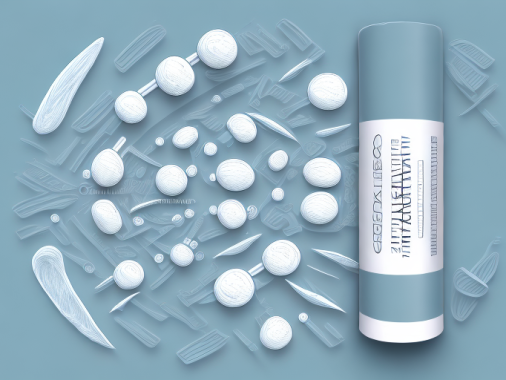Snoring can be a nuisance not only for the snorer but also for their sleeping partner. It can cause sleep disturbances, daytime fatigue, and irritability. Several factors can cause snoring such as sleeping positions, allergies, nasal congestion, and obesity. Fortunately, some practical solutions can help reduce snoring, and one of them is using the best pillows for snoring. In this comprehensive guide, we will look in detail at the many causes of snoring and how different types of pillows can help reduce snoring effectively.
Understanding the Causes of Snoring
Snoring occurs when there is an obstruction in the airflow through the throat and the mouth, causing the tissues to vibrate. Certain factors increase the likelihood of snoring, such as sleeping on your back, having a deviated septum, being overweight, taking certain medications, drinking alcohol, and smoking. All these factors cause your airways to narrow, making it difficult for you to breathe without snoring at night.
Another factor that can contribute to snoring is age. As we get older, our throat muscles become weaker, which can lead to snoring. Additionally, allergies and sinus problems can cause congestion and inflammation in the nasal passages, making it harder to breathe through the nose and increasing the likelihood of snoring.
It’s important to note that snoring can also be a symptom of a more serious condition called sleep apnea. Sleep apnea is a disorder in which breathing repeatedly stops and starts during sleep, and it can lead to a range of health problems if left untreated. If you or a loved one experiences loud snoring, pauses in breathing during sleep, or excessive daytime sleepiness, it’s important to speak with a healthcare provider to determine if sleep apnea may be the cause.
How Pillows Can Help Reduce Snoring
Using the best pillows for snoring can help reduce snoring by supporting proper head and neck positioning, opening up airways for easier breathing, and reducing snoring vibrations. A pillow with the right elevation, design, and materials can help ensure that your head and neck remain in a neutral position throughout the night, preventing the collapse of tissues in the throat that cause snoring. Different pillows have varying levels of effectiveness in reducing snoring, and it is essential to choose the right pillow that suits your specific snoring patterns.
Aside from using the right pillow, there are other lifestyle changes that can help reduce snoring. Losing weight, avoiding alcohol and sedatives before bedtime, and sleeping on your side instead of your back can all contribute to a decrease in snoring. Additionally, practicing good sleep hygiene, such as maintaining a consistent sleep schedule and creating a relaxing sleep environment, can also help reduce snoring.
If snoring persists despite using the best pillows and making lifestyle changes, it may be a sign of a more serious condition, such as sleep apnea. It is important to consult with a healthcare professional if snoring is affecting your quality of life or if you experience other symptoms, such as excessive daytime sleepiness or gasping for air during sleep.
Different Types of Pillows for Snoring
When choosing the best pillows for snoring, you have several options to choose from, depending on your preferences, sleeping position, and needs. Some of the most common types of anti-snoring pillows include contour pillows, memory foam pillows, latex pillows, and buckwheat pillows, each with unique features and benefits that help reduce snoring.
Contour pillows are designed to support the natural curve of your neck and head, providing optimal alignment and reducing snoring caused by airway obstruction. Memory foam pillows, on the other hand, conform to the shape of your head and neck, providing customized support and pressure relief, which can also help reduce snoring.
Latex pillows are hypoallergenic and breathable, making them a great option for people with allergies or asthma. They also provide excellent support and comfort, which can help reduce snoring. Buckwheat pillows are filled with buckwheat hulls, which conform to the shape of your head and neck, providing customized support and pressure relief. They are also breathable and hypoallergenic, making them a great option for people with allergies or asthma.
Contour Pillows: The Ultimate Solution for Snoring
Contour pillows are one of the best pillows for snoring because they have a unique shape that conforms to your head and neck curves, maintaining the natural alignment of your spine. They come in different densities, sizes, and shapes to provide customized support for different sleeping positions and body sizes. The contoured shape helps elevate your head and neck, reducing snoring by opening up the airways for better breathing.
Moreover, contour pillows are also beneficial for people who suffer from sleep apnea, a condition where breathing repeatedly stops and starts during sleep. The elevated position of the head and neck helps to keep the airways open, reducing the frequency and severity of sleep apnea episodes. Additionally, contour pillows are made from hypoallergenic materials, making them a great choice for people with allergies or sensitive skin. With their unique shape and multiple benefits, contour pillows are a must-have for anyone looking to improve their sleep quality and reduce snoring or sleep apnea symptoms.
Memory Foam Pillows: A Good Choice for Snorers
Memory foam pillows are another popular type of anti-snoring pillow that conforms to your head and neck shape, providing comfortable and customized support. They have a dense and firm structure that maintains proper head and neck alignment, reducing snoring. Memory foam pillows are also hypoallergenic and contour well to your bodyweight, making them ideal for people who suffer from allergies or neck pain.
In addition to reducing snoring, memory foam pillows have other benefits. They can help improve your sleep quality by reducing tossing and turning, as they provide excellent support to your head and neck. This can lead to a more restful and rejuvenating sleep, leaving you feeling refreshed and energized in the morning.
Another advantage of memory foam pillows is that they are durable and long-lasting. They are made from high-quality materials that can withstand wear and tear, and they do not lose their shape over time. This means that you can enjoy the benefits of your memory foam pillow for years to come, making it a worthwhile investment for your sleep and overall health.
Latex Pillows: An Excellent Alternative for Snorers
Latex pillows are made of natural or synthetic materials, and they have a unique bouncy and supportive feel. They offer excellent support and pressure relief, making them ideal for people with neck pain or stiffness. Latex pillows are also breathable and hypoallergenic, reducing the risk of mold and dust mites that can cause allergies and snoring.
Moreover, latex pillows are known for their durability and long-lasting quality. They can maintain their shape and support for years, unlike other types of pillows that tend to flatten out over time. This means that investing in a latex pillow can save you money in the long run, as you won’t have to replace it as frequently as other pillows.
Another benefit of latex pillows is that they are eco-friendly. Natural latex is derived from the sap of rubber trees, making it a renewable and sustainable resource. Additionally, latex pillows are biodegradable, meaning they won’t contribute to environmental waste when it’s time to dispose of them.
Buckwheat Pillows: Unique and Effective Choice for Snorers
Buckwheat pillows are made of buckwheat hulls, and they provide a unique and comfortable feel that conforms to your head and neck shape. They are lightweight, breathable, and maintain coolness, promoting better sleep quality and reduced snoring. Buckwheat pillows are also hypoallergenic, making them suitable for people with allergies and other respiratory conditions.
Moreover, buckwheat pillows are known for their durability and longevity. Unlike traditional pillows that lose their shape and support over time, buckwheat pillows maintain their shape and firmness for years. This means that you won’t have to replace your pillow frequently, saving you money in the long run.
Another benefit of buckwheat pillows is that they are customizable. You can adjust the amount of buckwheat hulls inside the pillow to achieve your desired level of firmness and support. This makes buckwheat pillows a great choice for people with different sleeping positions and preferences.
Cooling Pillows for a Restful Sleep and Reduced Snoring
Cooling pillows are a popular choice for people who tend to overheat at night, causing a disruption in sleep and snoring. These pillows are made of breathable materials, such as gel-infused memory foam or latex foam, which help regulate body temperature for a restful and peaceful sleep.
In addition to regulating body temperature, cooling pillows also offer other benefits. For example, they can help alleviate neck pain and headaches by providing proper support to the head and neck. This is especially important for people who sleep on their side or stomach, as these positions can put strain on the neck and spine.
Furthermore, cooling pillows can be a great option for people with allergies or asthma. The breathable materials used in these pillows can help reduce the buildup of dust mites and other allergens, which can trigger respiratory issues. This makes cooling pillows a healthier and more comfortable choice for people with these conditions.
Adjustable Pillow Loft: Finding the Right Height to Reduce Snoring
Adjustable pillows are specially designed to allow you to customize the loft or height of your pillow, which can affect your head and neck alignment and reduce snoring. These pillows often have removable inner layers or adjustable fill materials, such as shredded memory foam, buckwheat hulls, or fibers, that allow you to change the pillow’s loft as per your preferences and needs.
Adjustable pillows are not only beneficial for reducing snoring but also for improving sleep quality. By adjusting the pillow’s loft, you can find the perfect height that provides optimal support and comfort for your head and neck. This can help alleviate neck pain, headaches, and other discomforts that can disrupt your sleep.
Moreover, adjustable pillows are suitable for all types of sleepers, including back, side, and stomach sleepers. Depending on your sleeping position, you can adjust the pillow’s loft to ensure that your spine is properly aligned and your airways are open, which can further reduce snoring and improve breathing during sleep.
Pillow Designs and Features that Help Reduce Snoring
When selecting the best pillows for snoring, you should consider several design features that can help reduce snoring effectively. These include pillows with a raised or contoured edge, adjustable fill materials, breathable fabrics, and washable covers that promote cleanliness and hygiene.
Choosing the Best Pillow for Your Sleeping Position to Minimize Snoring
Your sleeping position can affect your airways and cause snoring. It is essential to choose a pillow that suits your sleeping position and provides adequate support and alignment to reduce snoring. If you sleep on your side, you may need a firmer and thicker pillow that elevates your head and neck to prevent snoring. If you sleep on your back, you may need a softer and thinner pillow that molds to your neck curve and reduces snoring vibrations.
How to Maintain Your Anti-Snoring Pillow for Optimum Effectiveness
To ensure that your anti-snoring pillow remains effective in reducing snoring, you should maintain proper hygiene and care. Most anti-snoring pillows come with removable and washable covers that you should wash regularly to get rid of dirt, sweat, and oils that accumulate over time. You should also fluff and adjust your pillow regularly to maintain its loft and provide proper support.
Understanding When to Replace Your Anti-Snoring Pillow
Anti-snoring pillows can last for a long time, but they also wear out and lose their effectiveness over time. You should replace your anti-snoring pillow every 18-36 months, depending on its quality, usage, and care. Signs that your pillow needs replacement include lack of support, flattening or sagging, and worn-out covers.
Customer Reviews and Ratings of Top Anti-Snoring Pillows on the Market
When selecting the best pillows for snoring, you can also rely on customer reviews and ratings to guide your decision. Many websites and online marketplaces offer customer reviews and ratings of the top anti-snoring pillows on the market, providing useful insights into their effectiveness, comfort, and durability. You should also check for the manufacturer’s warranty, return policy, and customer service to ensure that you get the best value for your money.
Overall, using the best pillows for snoring can help you reduce snoring and improve sleep quality, leading to better health and well-being. Choosing the right pillow depends on your preferences, sleeping position, and needs, and you should consider several design features and materials that promote proper support, alignment, and hygiene. With this comprehensive guide, you are now armed with the knowledge and information you need to make the right choice and enjoy a snore-free life.





